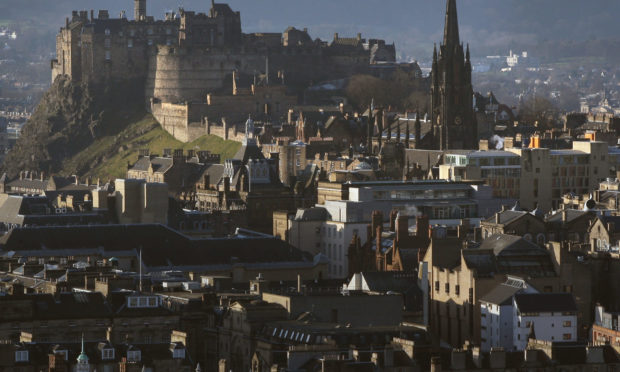New investors in Edinburgh property like barricades. Incomers with cash have the idea that wealth makes them potential targets of crime. They buy houses in the city and then fix automatic gates to the drive and elaborate alarms. Good business for security companies, but quite pointless.
These incomers imagine the Scottish capital to be like the big global cities – where the wealthy are robbed or kidnapped. The crime statistics show no evidence of this. The biggest crime to happen in Edinburgh was when the residents of the posh suburbs broke Scotland’s banks and got the government to bail them out. Kidnapping, not so much.
The narcissism of the global one per cent didn’t figure on a contagion being the neighbourhood mugger. All the high gates and digital key pads were useless, so the rich went north. The capital’s New Town is empty, its residents virus refugees to second homes.
The historic trend of Scots is to go south. The night bus to London was a literal rite of passage. Young people dressed up for the journey, as if the city would judge their fashion sense on arrival. It was important to arrive looking good. It was the trip to opportunity, a mission into independence. It was exciting.
The proximity of London is a draw for the Irish, northerners, Scots and the Welsh. It deprives other parts of these isles of talent, but goes to make a great city. Immigrants from empire, refugees from conflict, wannabes from all over joined in – London is a global city matched only by New York for its welcome to the world.
But as in the Big Apple, the virus has done more than send the rich to second homes. It has raised fundamental questions about big city living for all classes.
The first cities were built by farmers – somewhere to live while waiting on the harvest. This begat small traders, politicians and ultimately traffic wardens. In the process, the farmers got forgotten and humans developed an entirely unnatural environment of fried chicken shops, property price conversations and squalor.
In the Bible, humans build the Tower of Babel all speaking a single language, but God wills them to speak different tongues, so that they fall out. No sooner is the city invented than it’s given a bad press.
As a youth on the night bus, it was the evils of the city you looked forward to. Drugs, drink and women, ideally alongside a steady income and a townhouse in Kensington. These coach-bound dreams would become a bed sit in Hammersmith, a four-pack of Red Stripe and just as little sex as before. But still we came.
More than half the planet lives in cities, chasing a legitimate dream of higher wages. In the process, humans live unnaturally close to one another, often without sanitation, while sucking up local resources like clean water. A time had to come when this trend halted. Perhaps it is now.
London, Manchester and Birmingham have been the worst affected places by the virus. In broad terms, Covid-19 has been an urban killer. It has contaminated the idea of closeness. Public transport is a risk, restaurants a no-go and midnight trysts with strangers a death sentence. That’s much of the city done for.
The planet’s cities are economic eco-systems. Demand to get in on the action drives land prices, which push skyscrapers ever higher in order to accommodate huge offices where the commuter class sit together to look at emails and browse holiday options.
A city’s wealth in part depends on the false idea that’s its necessary to be physically close. It’s the crush that creates the money. Since the virus, the crush is over. With much of the economy online, the white-collar workforce has stayed at home. Since March 23 the world has functioned without the big office.
Remember the scares about lockdown grinding civilisation to a halt, the last urban dwellers fighting over loo roll? The disaster didn’t happen. Food has been distributed, banking continued, utilities keep running all by people working from home.
There has been a significant economic hit, but that has as much to do with changing habits of customers as the geography of work. Twitter has announced it won’t go back to office working – expect many others to follow.
If the office dies, then so too does London’s rush to skyscrapers, and its multi-billion commercial property sector takes a hit. In the process, the idea of the city is questioned. Why live so close together, at such expense and inconvenience?
The new money coming into Edinburgh is in part from people who have already given up on the global cities. They want quality of life over prestige addresses. This trend can only continue. When people get used to living here, they might even learn to unlock the gate and join the community. It’s what they came for.
The end of London? No, that would be hasty. But a shift in how humans live, absolutely.
Spare a thought though for the youth, all dressed up and dreaming of sin, waiting for a night bus that may no longer run.


